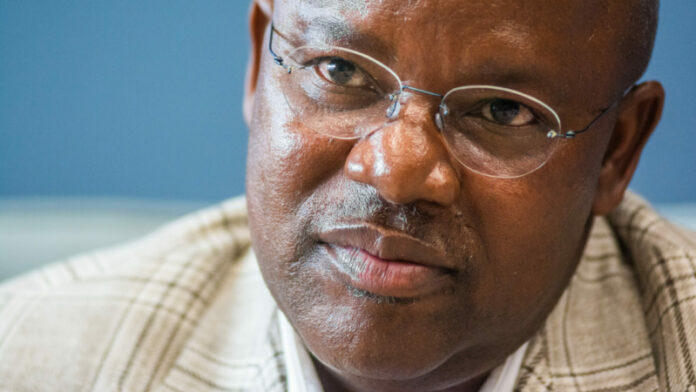
The Richards Bay Coal Terminal (RBCT) is buying spare parts to maintain Transnet’s locomotives as part of the coal industry co-operation effort to improve coal exports.
This was revealed in the Thungela Resources 2023 annual report by CEO July Ndlovu who said the RBCT was acting on behalf of the coal exporters which had also deployed extra security on the rail line to Richards Bay over the past 18 months.
Transnet has been unable to source spares for its locomotives directly because of a contractual impasse with Chinese locomotive supplier CRRC Corporation which is refusing to supply spares for its locomotives bought by Transnet.
Ndlovu commented, “the cost of the spares and security deployment is recovered by the coal exporting parties through the mutual co-operation agreement signed between Transnet Freight Rail (TFR) and the RBCT.
“Future collaborative efforts will address critical systems, such as signalling, to improve overall performance.”
Both Ndlovu and Thungela chairman Sango Ntsaluba sounded wary over expected improvements in TFR’s performance.
Ndlovu commented, “given the uncertain nature of TFR’s performance we have agreed to extend the existing long-term rail agreement by one year – to 31 March 2025 – to allow TFR to demonstrate sufficient stability before the contract is re-negotiated.”
Thungela’s caution is also clear in Ndlovu’s medium term business forecast for the group. Thungela exported 12.3mt of coal from South Africa during 2023 despite the huge problems with TFR but Ndlovu forecast that, “by 2026, Thungela will be a circa 15mt/year export business with an estimated 11mt/year from South Africa and 4mt/year from Australia.”
Ntsaluba commented that, “we are concerned the R47bn government guarantee, while a positive step, may not be sufficient for a long term solution to Transnet’s challenges.”
Government provided the guarantee in December – stating Transnet could access R22.8bn of it immediately – after Transnet executives revealed in October that it needed at least R50bn in funding as it was not in a position to fund its infrastructure maintenance requirements from its own operations.
Reasons were the general poor state of rail infrastructure, ongoing theft and vandalism and the unavailability of locomotives.
Ntsaluba commented, “Thungela believes that either government recapitalisation or effective private sector participation is necessary to ensure Transnet’s long-term viablility.”











